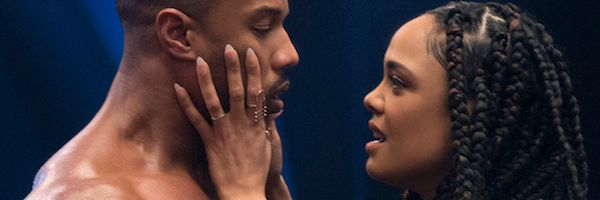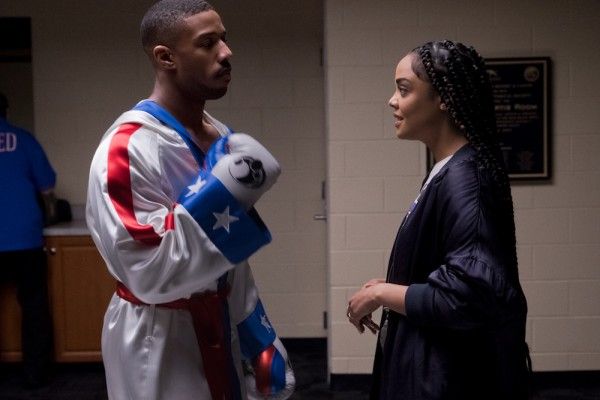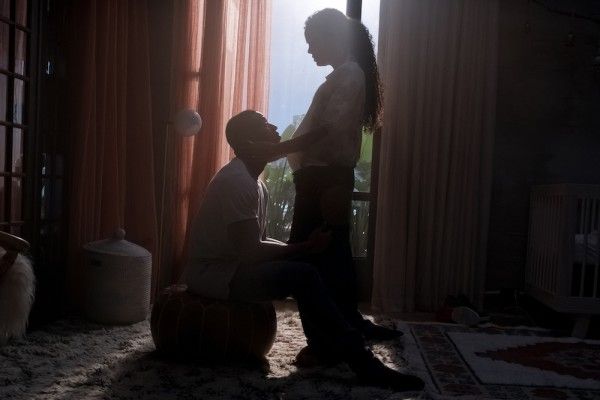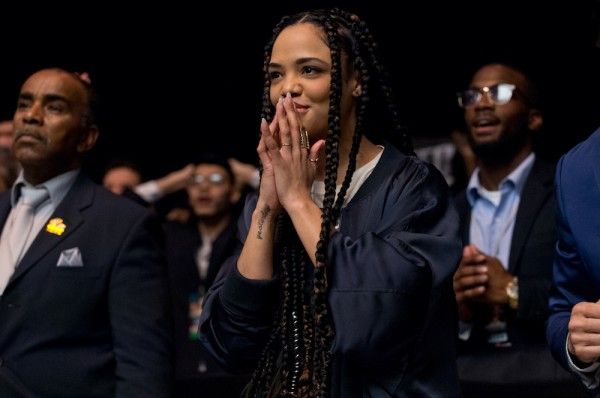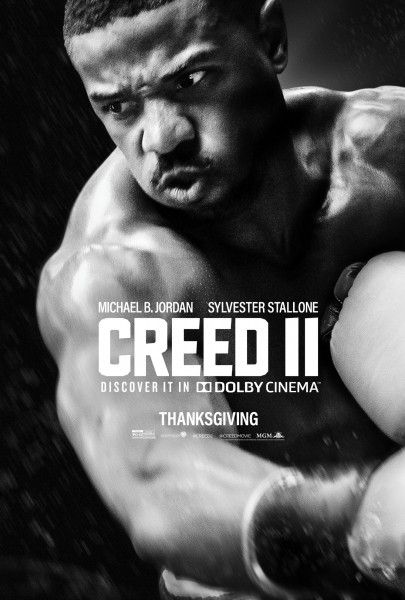plays like the dark, emotional reboot of 1985's Rocky IV, a description that doesn't quite do justice to just how well this film works. The sequel to Creed—with director Steven Caple Jr. stepping in for Ryan Coogler—sees Adonis Johnson (Michael B. Jordan) feeling the pressure of the light heavyweight championship around his shoulder, the same belt his father once defended. With his fiance Bianca's (Tessa Thompson) star on the rise as well, Adonis' life is upended when the man who killed Apollo Creed, Ivan Drago (Dolph Lundgren), arrives in Philadelphia to announce the latest challenger for the belt: His son, Viktor Drago (Florian Munteanu). Against the advice of his trainer Rocky Balboa (Sylvester Stallone), Adonis takes the fight, and what follows is basically a Shakespearian tragedy told through stiff jabs and workout montages.
Before Creed 2‘s November 21 premiere, Collider hopped on the phone with star Tessa Thompson. In this 1-on-1 interview, we discussed how her character has matured since the first film, acting without dialogue during intense boxing scenes, the most surreal moments from film the movie's biggest set pieces, and more.
Collider: How did you visualize Bianca's arc in this movie compared to the first one? How is it different?
TESSA THOMPSON: She's a character that I just really loved playing in the first one so I was really excited about getting the opportunity to play her again. Something that's really incredibly important to her is her music. It's her form of expression and something that is essential to her. That was something that was really important to me in the second one. One of the central themes of Creed 2 is family, so it was really important for Mike's character Adonis and my character to essentially make a family together. That deepens the stakes for them but inside of that, it was really paramount to me that she continues to be someone pursuing her dream because, in her case, she feels that she has a very real timeline on how long she can do it. For that reason, that's such a priority for her.
Also just that these characters mature. In that space where she matures, the question I wanted to ask is, "Well, how does that affect her music?" One thing we really talked about is, "Is she interested? Has she grown up from being this artist who wants to be independent, who wants to have control over everything? Who is happy to make music that not a ton of people listen to but feels really authentic? Has she grown into someone who is more available to collaboration and wants a bigger audience and bigger scope and seeks longevity?" The answer was "yes," so we wanted to make sure her music evolved. It was great to have some artists like James Fauntleroy and Bibi Bourelly come in and write with me and take her music into a new space.
Do you think Bianca is a different person when she's performing?
THOMPSON: Yeah, she definitely is. She really is. I think that's why her music is so important to her. There are certain parts of her that she doesn't really have access to all the time in her day to day life and that she accesses through her music. A real vulnerability where she can talk about some of her fears and the things that trouble her. She can speak about it more readily in her music. She's somebody who—and her walls have been breaking down—but she is someone who is fairly guarded. Kind of hard to get to, which is something you really saw in the first film and it's softening tremendously in the second film. But her music is where she's most available and for that reason it makes her a different person. In the first Creed, I think the first time you actually see her smile is when she's on-stage.
How would you say the move out of Philadelphia to Los Angeles changes the dynamic of the character?
THOMPSON: She's just signed with a major label which was something she wasn't sure she wanted to do. In the first film, we really established her as a real independent artist. She was entirely self-produced, she always worked from home. 100% of her output was her. In this film we see her, for example, go to a studio. She has a home studio but she's also working with other artists and she's allowing a record label to come in and help shape her. That's something that is new for her, and frankly, I think for someone who is born and bred in Philly and really has this idea of "keeping it real" she's a bit out of her comfort zone in Los Angeles. But in a way, that's what she's looking for. She's looking to shake, get up, and break new ground. Sometimes a change of pace and change of location does that. Obviously, it's pretty monumental for the series because as much as Rocky is such an iconic character, most of the iconography that comes out of the franchise has to do with the city. The city is as much a character as anyone else in the movie. So that was a big deal for us. But we actually shot L.A. in Philly [laughs] so there's only so much out of Philly we can do on these. These movies are really about Philly.
You learn so much about Bianca about the way she reacts to what's happening to Adonis in the ring. What's the key to getting across so much without dialogue?
THOMPSON: As much as I love language and love dialogue, particularly when it's good, my favorite thing is to act without words. I love it. It's where I feel the most free and inspired. To me it's the beauty of film, it's the thing you can do on film better than in any other medium. It's just communicating emotion without words. That's a sweet spot for me. Certainly, with the boxing, it's about modulating. It's really easy in those spaces to play a really general, like, cheering. I really rely a lot on the director, and I'm so lucky that I have such sensitive, incredible directors in Ryan Coogler and Steven Caple Jr. Really relying on them to be my eyes and modulate the performance. Because the truth is, in those ringside scenes, we're shooting some of those sequences over three weeks. It's an awful lot of yelling, screaming, crying, clapping. How do you differentiate that? And also Bianca's responsibility, and mine, is to be the audience in those moments. To take the audience on that journey. So we just play a lot. The cool thing in the edit, when you get so much variety in terms of performance, you can really put it anywhere in the fight. You can cut and paste and really build the momentum of the fight inside those reaction shots. So that's something I really loved doing.
When you're shooting a film this size I assume there are a thousand moments where the scope of it just hits you. What's one specific moment from filming Creed 2 you'll always remember?
THOMPSON: It's funny because for us, we're making these films called Creed 1 and Creed 2, it's easy to forget somehow that we're making, essentially, Rocky films. Films that exist inside of the Rocky universe. And then there'll be moments on set, almost always when we're shooting a boxing scene, where we'll have like a thousand extras and that's the time where the scope hits you. Otherwise, it feels like we're making a niche drama, literally, like when it's scenes with just Mike and myself or just a couple players, it feels like we're making something small in scope. It's the way we've approached both films, with real sensitivity and honesty so it feels really small. Then we get into those boxing scenes and it suddenly feels massive. Also, we have all these characters that actually exist in the boxing world. Then it's totally surreal, because you have these guys come in and it's like we're making an HBO special suddenly. So that's incredible. And then there will be days where we have a thousand extras and [Sylvester Stallone] is in the ring and he's just minding his business. Shaking it out. Then the extras will start chanting "Rocky, Rocky, Rocky." It obviously means so much to them. So those are the sort of surreal moments that I won't forget.
In the first movie, we shot one fight scene in entirely one take, and that was such a dance. Just the coordination it took between camera and the guys in the ring fighting Mike, and makeup to come in and do the cuts. That was incredible and something that took like three months of practice and really felt electric when it all went right.

